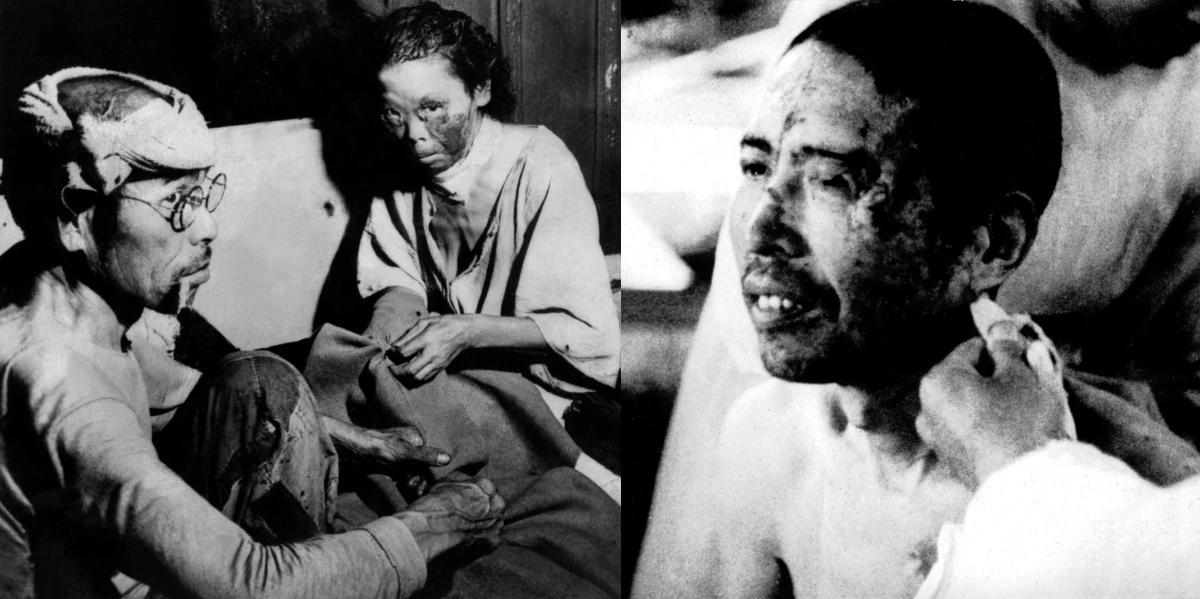Introduction:
Nuclear bomb results, The invention of nuclear weapons marked a significant turning point in human history. The sheer destructive power of these weapons has the potential to cause unprecedented devastation. While the use of nuclear bombs in warfare has been limited to only two instances, the effects of those bombings remain etched in the collective memory. This article explores the consequences of nuclear bomb explosions, shedding light on the devastating impact they have on human life, the environment, and the world at large.
Immediate Effects:
Blast Wave and Thermal Radiation:
Nuclear bomb results, The blast wave causes widespread destruction, flattening structures and causing severe injuries. Intense thermal radiation causes severe burns and ignites fires, exacerbating the destruction.

Radiation Exposure:
Nuclear bomb results, Nuclear explosions release various forms of radiation, including gamma rays, neutrons, and radioactive fallout. Immediate radiation exposure leads to acute radiation sickness, causing nausea, vomiting, and organ failure. High levels of radiation can result in immediate death, while lower doses increase the risk of long-term health complications.
Long-Term Health Effects:
Cancer and Genetic Mutations:
Nuclear bomb results, Prolonged exposure to nuclear radiation increases the risk of cancer, including leukemia, thyroid cancer, and solid tumors. Genetic mutations can occur in both survivors and future generations, leading to hereditary disorders and birth defects.
Environmental Contamination:
Nuclear bomb detonations contaminate the environment with radioactive particles, impacting ecosystems for years or even centuries. Soil, water, and vegetation become contaminated, affecting agriculture, wildlife, and the food chain. Radioactive isotopes can also contaminate underground water sources, posing long-term risks to human populations.
Socioeconomic Impact:
Infrastructure and Economy:
Nuclear bombings cause massive destruction of infrastructure, including hospitals, schools, and transportation systems. Rebuilding cities and communities requires substantial resources, straining economies for years. The economic fallout extends beyond the directly affected areas, affecting global markets and trade.
Displacement and Refugee Crisis:
Nuclear bomb results, Survivors of nuclear bombings often face displacement, forced to leave their homes due to the destruction or high radiation levels. Large-scale migration creates refugee crises, overwhelming neighboring regions and straining humanitarian resources.
Global Consequences:
Arms Race and Proliferation:
The use of nuclear bombs intensifies the global arms race, as nations seek to acquire or improve their nuclear capabilities. The proliferation of nuclear weapons increases the risk of accidental or intentional nuclear conflict.

Nuclear Winter:
Nuclear bomb results, The detonation of multiple nuclear bombs could release massive amounts of soot and dust into the atmosphere, blocking sunlight and causing a “nuclear winter.” A nuclear winter would lead to a global drop in temperatures, decreased agricultural productivity, and widespread famine.
FAQs
Q: How powerful are nuclear bombs?
Nuclear bombs possess immense power, with their destructive potential measured in terms of their explosive yield. The yield can range from a few kilotons (equivalent to thousands of tons of TNT) to megatons (equivalent to millions of tons of TNT).
Q: Have nuclear bombs been used in warfare before?
Yes, nuclear bombs were used twice during World War II. The United States dropped atomic bombs on the Japanese cities of Hiroshima and Nagasaki in August 1945.
Q: What are the immediate effects of a nuclear bomb explosion?
The immediate effects include a powerful blast wave that destroys structures and causes injuries, as well as intense thermal radiation that leads to severe burns and ignites fires.
Q: What is radiation exposure, and how does it impact human health?
Radiation exposure occurs when individuals come into contact with the radioactive materials released during a nuclear explosion. It can cause acute radiation sickness, resulting in symptoms such as nausea, vomiting, and organ failure. High levels of radiation can cause immediate death, while lower doses increase the risk of long-term health complications, including cancer and genetic mutations.
Q: What is the long-term impact of nuclear bomb explosions on health and the environment?
Prolonged exposure to nuclear radiation increases the risk of cancer, including leukemia, thyroid cancer, and solid tumors. Genetic mutations can occur in survivors and future generations, leading to hereditary disorders and birth defects. The environment suffers from contamination, affecting ecosystems, agriculture, and the food chain for extended periods.
Q: Do nuclear bomb explosions have economic consequences?
Yes, nuclear bomb explosions result in massive destruction of infrastructure, including hospitals, schools, and transportation systems. Rebuilding cities and communities requires substantial resources, straining economies for years. The economic fallout can also impact global markets and trade.
Q: What are the global implications of nuclear bomb explosions?
The use of nuclear bombs intensifies the global arms race as nations seek to acquire or improve their nuclear capabilities. The proliferation of nuclear weapons increases the risk of accidental or intentional nuclear conflict. Multiple nuclear detonations could potentially lead to a “nuclear winter,” causing a global drop in temperatures, decreased agricultural productivity, and widespread famine.
Conclusion:
Nuclear bomb results, The consequences of nuclear bomb explosions are both immediate and far-reaching. The devastating impact on human life, the environment, and the global order serve as a stark reminder of the need to prevent the use of nuclear weapons. The global community must work together to promote disarmament, strengthen non-proliferation efforts, and invest in peaceful resolutions to avoid the catastrophic aftermath of nuclear bomb results.
Must Read=Nuclear bomb and Atomic bomb
